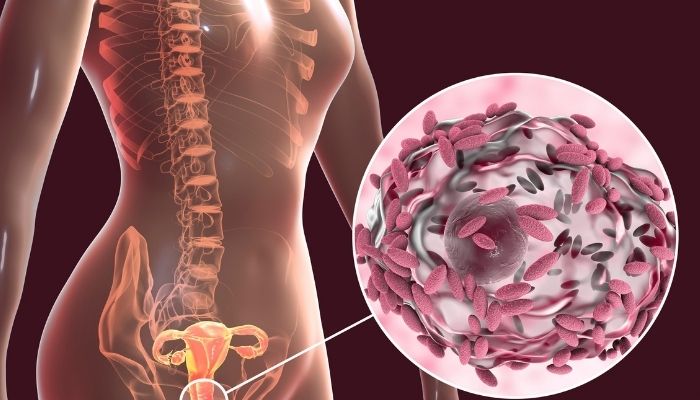Bacterial Vaginosis is a common problem for a woman that happens due to an imbalance of healthy and harmful bacteria in your vagina. In bacterial vaginosis, the overgrowth of harmful bacteria may disrupt the natural pH balance of your vagina. Women in their reproductive age are more prone to this vaginosis, but it can affect any woman, irrespective of their age.
Though bacterial vaginosis may not cause other health issues, if not treated, it can lead to some complications when you are pregnant or trying to get pregnant. The markets are crammed with many vaginitis treatment methods that will help you to overcome this problem.
Bacterial Vaginosis (BV) Symptoms
Most women with bacterial vaginosis may have no symptoms, while some also face the following symptoms:- Burning sensation during urination
- Vaginal itching or swelling
- Foul smell especially after having a sex
- Thin, green, gray, or white discharge
Bacterial Vaginosis Causes
Your vagina is slightly acidic because of lactobacillus. These bacteria don’t allow unhealthy bacteria to grow inside your vagina. But if the level of lactobacillus drops, more bad bacteria will enter and you will get BV. The risk of getting BV is higher if you:- Smoke
- Are sexually very active
- Douche (it upsets the natural balance of bacteria)
- An IUD that is placed inside your uterus may increase your risk of getting BV
Complications
Though BV is not harmful, it may enhance the risks of other diseases:- Sexually transmitted infections like herpes, chlamydia, gonorrhea, HPV, etc.
- HIV
- A post-surgical infection
- Loss of pregnancy
- The amniotic sac breaking open too early
- Postpartum endometritis is an irritation or inflammation of the lining of the uterus after delivery
- Chorioamnionitis, which is inflammation of the membranes around the fetus
- Tubal factor infertility
- Pelvic Inflammatory disease
Bacterial Vaginosis Treatment
Though BV may clear up without any treatment, if your symptoms are prominent, then doctors may recommend proper BV treatment or vaginitis treatment methods to control infection.Antibiotic medication
Antibiotics are useful in curing the symptoms of BV. But if you suffer from recurrent infection within a few weeks, then a long-term course is recommended.Here are some antibiotics that a doctor may recommend for BV:
1. Metronidazole
Metronidazole is the most common BV medication that is applauded by many. It is available in the following forms:- Oral tablets: You need to take this medicine twice a day for 7 days. This is very effective, especially if you are pregnant or breastfeeding.
- Single-dose: For the treatment of BV, The Food and Drug Administration approved Solesec (secnidazole) in 2017. This is the only single-dose oral BV treatment. A person needs to sprinkle a 2-gram (g) packet onto food.
- Gel: A patient needs to apply this gel topically on the vagina once a day for 5 days.
2. Clindamycin
This is an alternative antibiotic that may work if metronidazole is not effective in curing your infection or if the infection recurs. In this first-line treatment, a person needs to apply the cream inside her vagina for 7 days at bedtime.Doctors may recommend clindamycin tablets that you need to take twice for 7 days. Sometimes, a patient needs clindamycin ovules that she needs to insert her vagina at bedtime for 3 days. Both Clindamycin ovules and cream deteriorate latex, so barrier contraceptive methods are less effective during this treatment period.
Some examples of these methods include:
- Latex condoms
- Diaphragm
- Cervical caps
3. Tinidazole
This is another robust antibiotic that is recommended if you are having recurrent BV or metronidazole does not work.A person should take a 2-g oral dose once a day for 2 days. Or, she may take a 1-g dose once a day for 5 days.
Once using this medication, you should stay away from consuming alcohol, as the combination may lead to some gastrointestinal effects.
Treatment for Recurring Symptoms
For women who have recurrent BV, doctors may refer them to an extended course of metronidazole. If this is ineffective, they may need a metronidazole vaginal gel. A person needs to use this every day for 10 days or two times a week for 3–6 months.To treat recurrent BV, a longer course of treatment is needed.
Prevention Tips
There are guaranteed ways to prevent BV, but the following things will help you to minimize the risk of getting BV. :- While having sex, always use a barrier method of protection, such as a condom
- Stay away from douching
- Don’t use perfumed bubble baths
- Never use scented soaps or vaginal deodorants
- Wash your underwear in mild detergents
When to See a Doctor?
Consult a doctor if:- You have a vaginal discharge with a foul odor or fever. Depending on your symptoms and condition, your doctor will evaluate the causes and identify signs and symptoms.
- The color and consistency of your discharge look different
- You have multifarious sex partners or a recent new partner. Sometimes, the symptoms of STIs have many resemblances to those of bacterial vaginosis.
- Your infection persists even after using self-treatment or over-the-counter treatment medications.
The Bottom Line
BV is very common among women and it happens due to an imbalance of helpful and harmful bacteria in the vagina. Though experts don’t know the exact cause of it, certain factors, including feminine hygiene products and having sex with a new partner or multiple partners, may enhance the risks of the disease.BV symptoms may lead to other different diseases and, thus, you should opt for proper treatments. You should contact a healthcare professional before starting any treatment for BV.



